Uncategorized
-

-

We won’t shy away from covering politicized science
Editor in chief Nancy Shute discusses Science News' commitment to covering politicized science
By Nancy Shute -
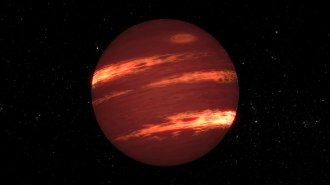 Astronomy
AstronomySand clouds are common in atmospheres of brown dwarfs
Dozens of newly examined brown dwarfs have clouds of silicates, confirming an old theory and revealing how these failed stars live.
-
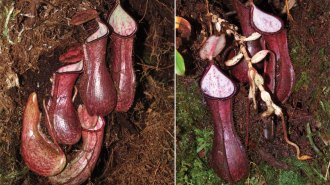 Plants
PlantsThis pitcher plant species sets its deathtraps underground
Scientists didn’t expect the carnivorous, eggplant-shaped pitchers to be sturdy enough to survive below the surface.
By Meghan Rosen -
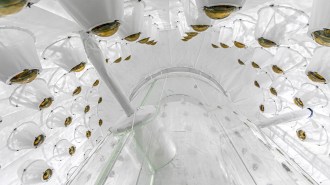 Particle Physics
Particle PhysicsA supersensitive dark matter search found no signs of the substance — yet
The LZ experiment’s first measurement raises hopes that scientists are closer than ever to finding the source of much of the universe’s mass.
-
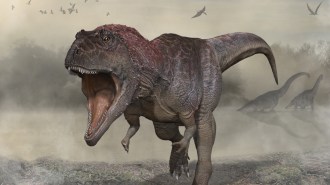 Paleontology
PaleontologyA newfound dinosaur had tiny arms before T. rex made them cool
A predecessor to Tyrannosaurus rex, Meraxes gigas had a giant head and puny but muscular arms, suggesting the limbs served some purpose.
-
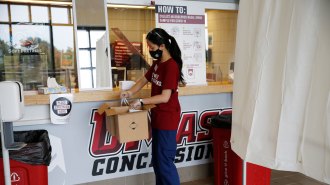 Health & Medicine
Health & MedicineCollege COVID-19 testing can reduce coronavirus deaths in local communities
Counties with colleges that did COVID-19 testing fared better against the coronavirus in fall 2020 than towns with colleges that did not test.
By Anil Oza -
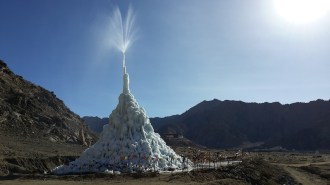 Environment
EnvironmentHow to build better ice towers for drinking water and irrigation
“Ice stupas” emerged in 2014 as a way to cope with climate change shrinking glaciers. Automation could help improve the cones’ construction.
By Nikk Ogasa -
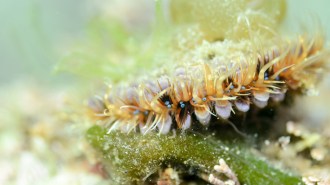 Animals
AnimalsEd Yong’s ‘An Immense World’ reveals how animals perceive the world
The book showcases the diverse sensory abilities of other animals and how their view of the world is different from our own.
-
 Psychology
PsychologyThe idea that many people grow following trauma may be a myth
Studies of posttraumatic growth are fundamentally flawed and can contribute to toxic cultural narratives, researchers say.
By Sujata Gupta -
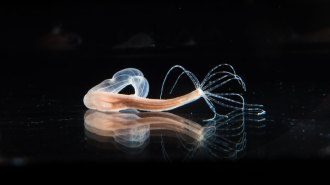 Life
LifeHere’s how sea anemones launch their venomous stingers
Starlet sea anemones use speedy projectiles to sting predators and prey. New images capture a detailed look at these weapons in action.
By Meghan Rosen -
 Quantum Physics
Quantum PhysicsAliens could send quantum messages to Earth, calculations suggest
Scientists are developing quantum communications networks on Earth. Aliens, if they exist, could be going further.